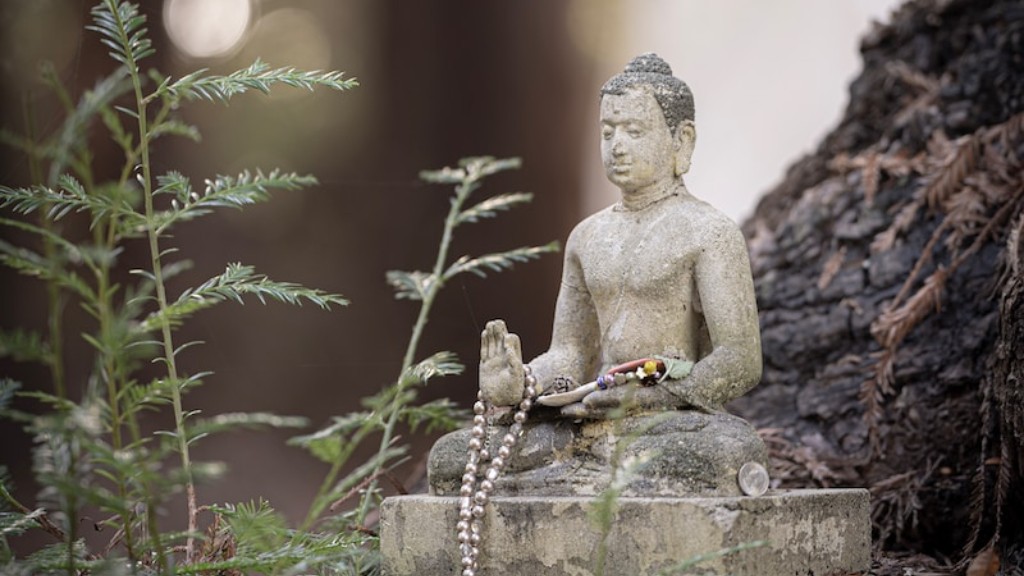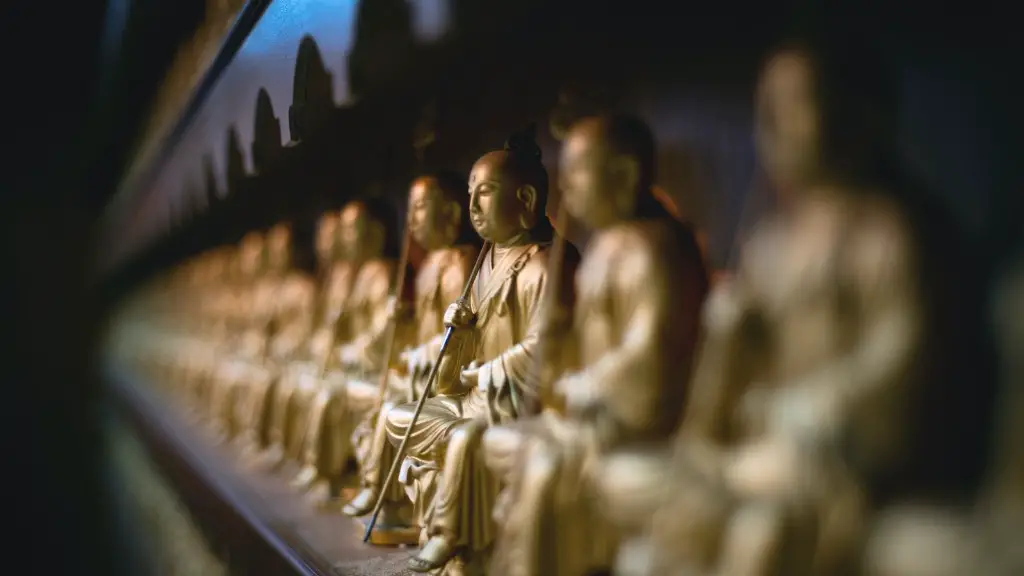Hinduism is the oldest religion in the world and its holidays are important to members of the faith. This article will explain what the holidays are and why they are important. It will also provide data on the importance of Hinduism in India and offer insights into the key beliefs of the religion.
Hinduism is the third largest religion in the world, with a global population of over 1.2 billion adherents. In India, which is home to around 80% of the world’s Hindus, the religion is of immense importance. It is a way of life, providing spiritual, moral and cultural values that shape the nation’s customs and observances.
Hinduism is based on an ancient sacred text, known as the Vedas, which were written over two thousand years ago. This text is composed of four books and contains the core beliefs of the faith. It also contains stories of ancient gods and goddesses, as well as mythology and symbolism that is still studied today.
At the heart of Hinduism is a belief in karma. This is the idea that a person’s actions have consequences, both in this life and in the afterlife. For Hindus, it is important to keep the balance between good and bad karma in order to reach moksha, or liberation from the cycle of birth and death.
Hindu holidays are an important part of the religion and are celebrated with great gusto throughout India. Diwali, one of the most important festivals, is celebrated for five days every October or November. During Diwali, Hindus light candles and lamps to symbolise the victory of good over evil and make offerings to the gods. Other significant holidays include Hanuman Jayanti, Shravan Purnima, Shivaratri, Raksha Bandhan, and the nine-day Navaratri festival.
Hindu holidays are a time for celebration, reflection and renewal. They provide an opportunity for Hindus to come together, practice their faith and remember their religious principles. They also promote cohesion and a sense of unity within the Hindu community.
Hinduism has a long and rich history, spanning thousands of years. It is a complex and diverse faith, with followers across every corner of the world. The holidays of Hinduism are an important part of this faith and their importance is evident in the enthusiasm with which they are celebrated.
Nature Of Hinduism
Hinduism is the oldest living religion in the world, with origins dating back to 1500 BCE. While there are a wide range of beliefs and practices within the faith, many adherents share certain core beliefs. These include the law of karma, the concept of reincarnation and a reverence for a Supreme Being.
Hindus believe that the goal of life is to escape the cycle of reincarnation by attaining moksha, or liberation. This is believed to be achieved through a balance of good and bad karma, as well as by following Hindu spiritual practices. These practices involve the daily worship of Hindu gods and goddesses, and periodic pilgrimages to temples and other sacred sites.
Hinduism is a multifaceted faith, encompassing a wide range of rituals and customs. These include the use of mantras, meditation, yoga and a variety of dietary preferences. It also has a rich literature and scripture, including the four Vedas, along with other ancient texts.
Significance Of Holidays
Hindu holidays are an opportunity for members of the faith to come together and celebrate their shared beliefs. They are an integral part of Hindu life and provide an opportunity for adherents to reconnect with their spiritual roots. Hindu holidays are also an important part of preserving the vibrant culture of faith.
Hindu holidays are celebrated with a range of activities such as puja, prayer, music and dance. During these days, Hindus also visit temples and engage in various rituals, such as the lighting of lamps and the offering of food and flowers to the gods and goddesses. These activities are believed to bring a connection between the divine and the human, while also bringing good fortune and peace of mind.
Hindu holidays provide an opportunity for Hindus to remember their religious principles and to reconnect with their community. They also give adherents an opportunity to take a break from their daily lives and reconnect with their spiritual selves.
Rituals Of Holidays
Hindu holidays involve a variety of rituals and activities, including prayer, meditation, chanting of mantras and fasting. Many Hindus also engage in puja, a ritual of worship that involves making offerings to the gods and goddesses. This often involves lighting lamps and incense and offering fruits, flowers and other gifts.
As part of the festival celebrations, Hindus often decorate the home and prepare special dishes and sweets. During Diwali, many Hindus light candles, lamps and fireworks. This festive period is a time for giving thanks and seeking blessings from the gods and goddesses.
Certain Hindu holidays are also marked by special religious activities, such as the observance of fasts or the taking of pilgrimages. During these occasions, Hindus will travel to temples to offer prayers, meditate, and perform rituals. They also visit sites of religious importance, such as the river Ganges, to connect with the divine.
Meaning Of Holidays
Hindu holidays are an important part of the faith and are a time for celebration, reflection and renewal. They are an important way for adherents to reconnect with their religious principles and to stay connected to the faith. They also serve to remind adherents of the core values and beliefs of Hinduism and to celebrate the vibrant culture of the faith.
Hindu holidays are seen as a time to reconnect with one’s higher self and to reaffirm one’s faith in the divine. They are a time for spiritual renewal and an opportunity to celebrate life’s blessings. They are also a time to come together with family and friends to celebrate the religion.
The holidays of Hinduism are an opportunity for adherents to come together and celebrate their faith. They remind believers of the values, beliefs and customs of the religion, while providing an opportunity for growth, connection and renewal.
Celebration Of Holidays
The celebrations of Hindu holidays often involve large gatherings of family and friends. During Diwali, for example, many people get together to visit temples, exchange gifts, play music and dance. Other holidays are celebrated in a more traditional manner, with families gathering for functions such as puja and prayer.
During some holidays, such as Ram Navami and Sankranti, Hindus offer food to the gods and make special offerings. On other holidays, such as Holi, Hindus exchange gifts and sweets as a sign of good will and friendship.
Hindu holidays are also an opportunity to come together and share a meal. Hindus often eat traditional dishes such as pulao, biryani and sweets. These meals are enjoyed with family and friends and provide an important time for fellowship and connection.
Hindu holidays are an important part of the faith and are celebrated with enthusiasm and joy. They bring families and friends together and provide an opportunity to reconnect with the faith and its core beliefs.
Hinduism In The West
Hinduism is a religion that is largely practiced in India, but its influence is also felt in the West. As immigration and globalization have allowed for the sharing of ideas and beliefs, Hinduism’s influence has taken root in some parts of the world beyond India.
Today, there are Hindu temples and places of worship in some major cities in the United States, Europe and Australia. There are also Hindu festivals and holidays that are celebrated in these countries, such as Diwali, Holi and Navaratri. These festivals allow Hindu adherents in the West to celebrate their faith and make connections with other members of the Hindu community.
Hinduism has gained followers in the West in recent years. This is partly due to the availability of Hindu texts, scriptures and teachings on the internet, as well as the increasing interest in the faith’s spiritual practices, such as meditation and yoga.
Hinduism has found a place in the West and its holidays are now celebrated by many adherents around the world. These celebrations allow adherents to come together and share their faith, while also connecting them to their heritage.
Conclusion
Hindu holidays are an important part of the religion and are celebrated with great enthusiasm. They provide an opportunity for adherents to come together and to reaffirm their faith in the divine. The holidays also allow Hindus to reconnect with their cultural and spiritual roots, while celebrating the vibrant culture of the faith.


